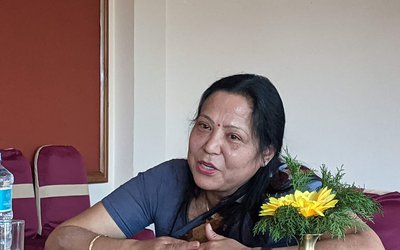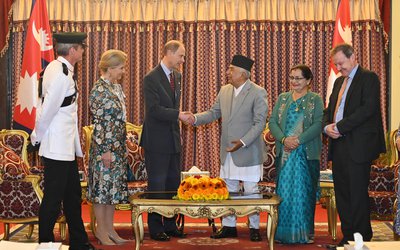
How long have you been working in an educational field?
I have taught pupils from the age of 5-16 years old and have been involved in school leadership for more than 25 years as a Deputy Head Teacher, Head Teacher and as a Leadership Developer and a Head Teacher of schools that have failed. Many of the communities in which I worked are amongst the economically poorest in the UK.
You have been with the British Council since 2002 to improve the needs of education systems and develop school leadership under its Connecting Classrooms through Global Learning programme. What major differences have you found in school leadership over these past years?
I worked with the British Council on three separate occasions since 2002. My first role was a Specialist Adviser in School Leadership for developing programme of international study visits for UK head teachers on behalf of the Department for Education and The National College for School Leadership. I took a Senior Policy Adviser role in 2009 and currently I am a Leadership Consultant and Global Master Trainer for the British Council and other not-for-profit organisations. I have worked in most regions of the world, principally in Africa, Asia and South America and have worked directly with governments and professionals in over 50 countries.
The British Council’s Connecting Classrooms programme through Global Learning is one of our initiations to support teachers and school leaders to improve teaching and give students the knowledge, skills and attitudes they need to make a positive contribution now and in the future. We support national and international collaborations between schools through International School Award (ISA) and help teachers and schools to develop school leadership, core and transferable skills and inclusive education.
The major difference I have noticed in the last 20 years is the transformation in school leaders. The school leaders enrolled in programmes like ISA in many countries have moved from being administrators to being leaders. With exposures like professional development, policy engagement and international collaboration, they are now more confident and responsible to manage and lead educational changes required in their schools. They are becoming leaders of learning for their organisations.

Why is it important to build network with schools, teachers and school leaders for educational development?
Governments the world over are demanding higher standards of pupil attainment and Head Teachers in schools are responsible for raising the standards in their schools. In this current educational climate, it is vital that schools, teachers and school leaders connect, learn from best practice world-wide and share their strategies and ideas. The UK experience is that schools are stronger when they work together in clusters.
Why do you think the conventional methods of school improvement have routinely failed?
Conventional methods of school improvement generally work for strong, resilient schools but those who are struggling or are in challenging communities need an individual solution that meets their very specific needs. There are some general principles and strategies that work in most circumstances but many schools that struggle with academic standards and standards of teaching, learning and behavior, need new and innovative solutions. One size does not fit all. This is also a topic of my doctoral research.
Why embedding of internationalism into the school curriculum is important in today’s education system?
Many of the schools in which I worked as a leader, and the countries I have worked in as a consultant are communities that are in-ward looking. The pupils are limited to experience and ideas within their communities. I know from my experience that today’s education system is much broader and resourceful for students as well as teachers and school leaders. By embedding internationalism into the school curriculum, they can develop international networks, gain comprehensive learning of the subjects, share experience, knowledge and develop 21st Century Skills mostly important to thrive in today’s competitive world.
- Enough Stock Of Passport For A Year: DoP DG Aryal
- Feb 05, 2025
- Weather Forecast: Geneally Cloudy To Mainly Fair
- Feb 05, 2025
- Duke and Duchess of Edinburgh Nepal Visit: Valuing Shared History And The Next Generation of Nepal –UK Friendship
- Feb 04, 2025
- Duke and Duchess of Edinburgh arrive in Kathmandu on 6-day Royal visit
- Feb 04, 2025
- FNCCI, CNI And NCC Call For Withdraw The Protest Against Cable Car Construction
- Feb 04, 2025
















